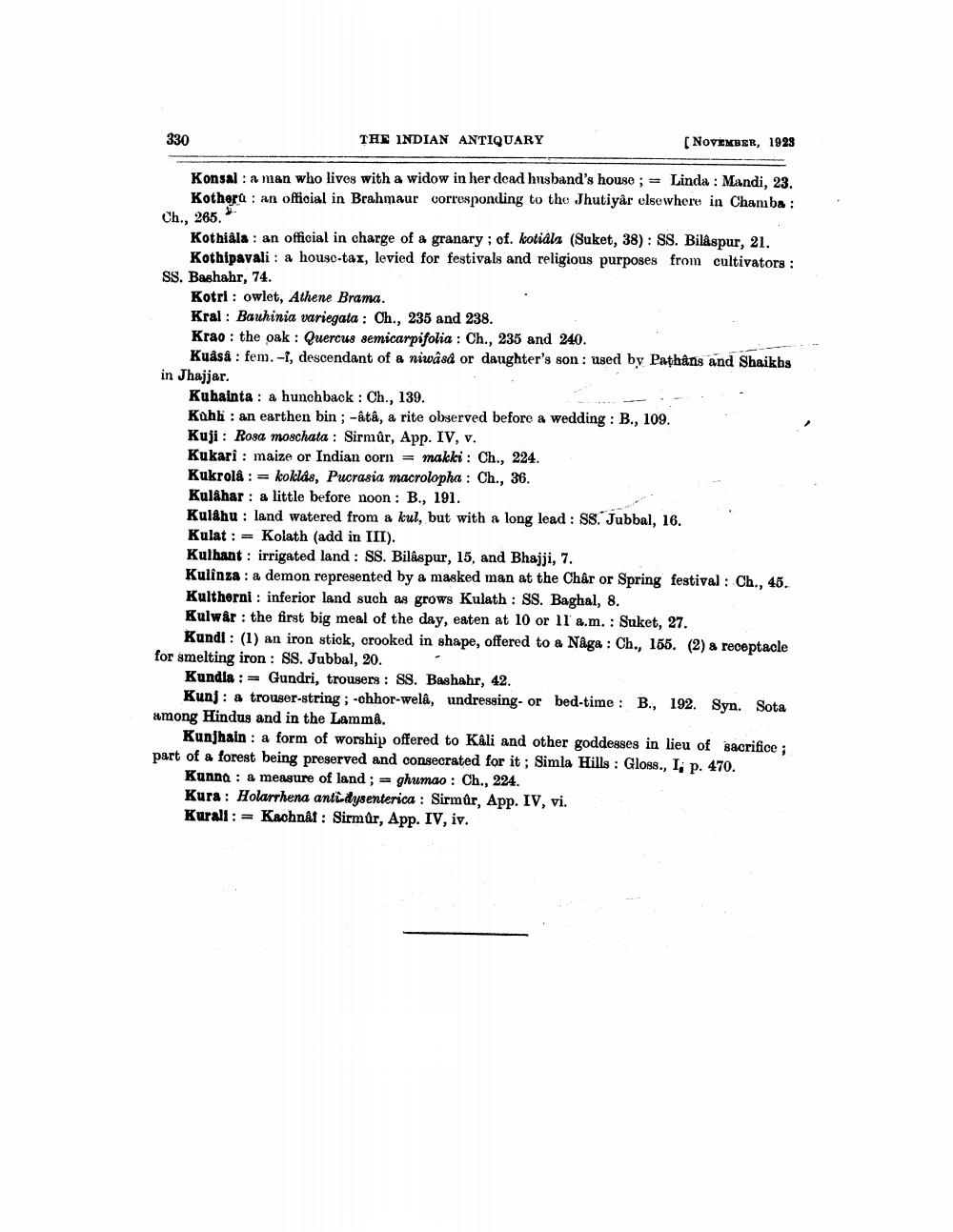________________
THE INDIAN ANTIQUARY
(NOVEMBER, 1929
Konsal: a man who lives with a widow in her dead husband's house ; = Linda : Mandi. 23.
Kotheru: an official in Brahmaur corresponding to the Jhutiyår elsewhere in Chamba : Ch., 265.
Kothiala : an official in charge of a granary ; of. kotials (Suket, 38): SS. Bilaspur, 21.
Kothipavali: a housc-tax, levied for festivals and religious purposes from cultivators: SS. Bashahr, 74.
Kotri : owlet, Athene Brama. Kral: Bauhinia variegata : Oh., 235 and 238. Krao : the oak: Quercus semicarpifolia : Ch., 235 and 240.
Kuasa : fem. -i, descendant of a niwaed or daughter's son: used by Pathans and Shaikhs in Jhajjar.
Kuhainta: a hunchback : Ch., 139. Kahli : an earthen bin ;-atâ, a rite observed before a wedding : B., 109. Kuji: Rosa moschata : Sirmûr, App. IV, v. Kukari : maize or Indian oorn = maklei : Ch., 224. Kukrolâ : = kokelas, Pucrasia macrolopha: Ch., 36. Kulâhar: a little before noon: B., 191. Kuldhu : land watered from a kul, but with a long lead : SS. Jubbal, 16. Kulat: = Kolath (add in III). Kulbant : irrigated land : SS. Bilaspur, 15, and Bhajji, 7. Kulinza: a demon represented by a masked man at the Chår or Spring festival : Ch., 45. Kulthorni: inferior land such as grows Kulath : SS. Baghal, 8. Kulwar : the first big meal of the day, eaten at 10 or 11 a.m.: Suket, 27.
Kunde: (1) an iron stick, crooked in shape, offered to a Naga : Ch., 155. (2) a receptacle for smelting iron : SS. Jubbal, 20.
Kundla :-Gundri, trousers : SS. Bashahr, 42.
Kunj: a trouser-string ; -chhor-wela, undressing. or bed-time : B., 192. Syn. Sota among Hindus and in the Lamma.
Kunjhain: a form of worship offered to Kali and other goddesses in lieu of sacrifice; part of a forest being preserved and consecrated for it; Simla Hills : Gloss., I, p. 470.
Kunna: a measure of land; ghumao: Ch., 224. Kura: Holarthena anti-dysenterica : Sirmûr, App. IV, vi. Kurall: = Kachnat : Sirmar, App. IV, iv.




